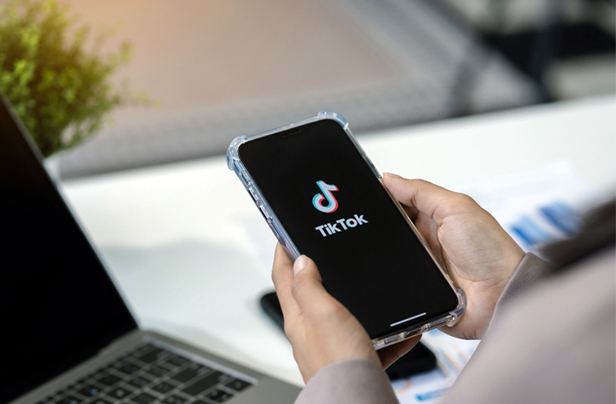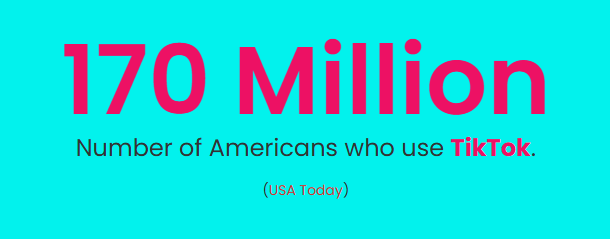Key Takeaways
• Impact: Marketers in promo and other industries rely on TikTok for brand building and client engagement. A ban would force them to adjust strategies and potentially lose a key source of inspiration for viral trends.
• National Security Concerns: The U.S. government has pushed for a ban due to concerns over data sharing with China and misinformation. ByteDance must sell TikTok by Jan. 19 to avoid the ban, though potential actions from the Supreme Court, President-elect Donald Trump or President Joe Biden could save the app.
• Potential Alternatives & Adjustments: Marketers may turn more to platforms like Instagram Reels and YouTube Shorts. However, TikTok’s unique tools and trendsetting capabilities make it hard to replace.
UPDATE 10:15 AM Eastern Friday, Jan. 17, 2025
Originally published Jan. 16, this article was updated to reflect a Jan. 17 Supreme Court ruling that, in effect, allows the ban on TikTok to proceed.
For Katie Roudkovski, TikTok is much more than entertainment; it’s a tool of her trade.
The marketing specialist at Flywheel Brands (asi/212986) uses the wildly popular shortform video-sharing app to create and distribute content that builds the Hixson, TN-based promotional products distributor’s brand, fostering connections with clients and, ultimately, helping to drive business.

But now, with a potential ban set to take effect Sunday, Jan. 19, Roudkovski – and other marketers, influencers and creators – is contemplating a world without TikTok. It’s not, for many of them, an attractive prospect.
“Without the app, marketers will have to adjust their content strategies for other platforms and may lose a key source of inspiration for viral trends and trending audios,” Roudkovski told ASI Media.
Marketers and creatives across trades, like Roudkovski in the promotional products industry, have embraced TikTok. They use the platform to learn about and tap into trends, bolster the reach of their brands, engage with clients, attract prospects and even sell directly, in instances.
With time, they could accomplish these goals to varying degrees by leveraging other established or emerging social platforms, promo marketers told ASI Media. But no doubt, if TikTok goes, there’d at least temporarily be a void – and seismic strategy shifts would rumble across the marketing sector.

“A TikTok ban would fundamentally reshape the marketing landscape, especially for brands and creators who have built entire strategies around the platform’s unique algorithm and highly personalized content delivery,” says Taylor Ebersole, social media manager at ASI. “From small businesses leveraging videos to boost sales to major brands like Tarte using influencer-driven experiential campaigns, TikTok has been a game-changer for authentic engagement and viral trends.”
A ban’s not just about upheaval to marketing efforts. It could also directly affect sales, some social media experts say.
“For the smaller business owners, I can see some loss of income from what’s been an incredibly effective ad medium,” says Charity Gibson, a longtime promo executive and merch industry social influencer who currently runs a marketing consultancy – The Paper Plane Clothing Company.
“What sticks out to me is the smaller businesses, including promo companies, who often operate as one-person marketing teams, dedicating significant effort to building their audience on TikTok,” adds Ebersole. “For these professionals, a single video showcasing their products or services can translate directly into a sale or a new client.”
An 11th Hour Save?
Legislation that President Joe Biden inked into law last spring gave TikTok’s China-based parent company, ByteDance, until Sunday, Jan. 19, to sell the platform.
The administration, backed by bipartisan support in Congress, enacted the sell-or-ban decree because many in the U.S. government believe TikTok presents a threat to national security. They’re concerned that Beijing-headquartered ByteDance could share American user data with the Chinese government, and they worry that authorities in China could use the app to spread misinformation and other nefarious influence in the U.S.
If ByteDance fails to execute a sale by Sunday, TikTok would be banned in the United States, meaning internet hosting services and app stores would be barred from distributing the app.
TikTok, which reportedly has 170 million American users, challenged the legislation in court. Last week, attorneys for the platform argued before the United States Supreme Court that the ban is unconstitutional, violating Americans’ First Amendment rights. The ban should be halted, attorneys said. However, the court disagreed, ruling that the ban is not a First Amendment violation.
“There is no doubt that, for more than 170 million Americans, TikTok offers a distinctive and expansive outlet for expression, means of engagement, and source of community,” the justices wrote in a decision issued Friday, Jan. 17. “But Congress has determined that divestiture is necessary to address its well-supported national security concerns regarding TikTok’s data collection practices and relationship with a foreign adversary. For the foregoing reason, we conclude that the challenged provisions do not violate petitioners’ First Amendment rights.”
Meanwhile, a Biden administration official went on the record with ABC News indicating that the administration wasn’t likely to act to stop the ban, but also indicated the ban wouldn’t be enforced during the administration’s final day in office. “Our position on this has been clear: TikTok should continue to operate under American ownership. Given the timing of when [the ban] goes into effect over a holiday weekend a day before inauguration, it will be up to the next administration to implement,” a White House official said.
Nonetheless, TikTok’s fate wasn’t necessarily sealed yet. Other media outlets have reported that President-elect Donald Trump was considering an executive order that would suspend enforcement of the TikTok ban for 60 to 90 days. Mike Waltz, Trump’s incoming national security advisor, reportedly called TikTok “a fantastic platform” and said “we’re going to find a way to preserve it but protect people’s data.”
Karoline Leavitt, a Trump spokesperson, told Fox News Digital that the incoming president “has repeatedly expressed his desire to save TikTok, and there’s no better dealmaker than Donald Trump.”
Even so, TikTok was reportedly making preparations late this week to shut down operations.
What Would Happen to TikTok if It’s Banned?
For starters, the app would no longer be available for download in app stores in the U.S. That means if you don’t already have TikTok, you wouldn’t be able to get it.
For those who already have TikTok, the picture is a bit more uncertain. Some say the app will “go dark.” When trying to access TikTok, users would get a notice that it’s not available in their country. That’s what happens in India, where TikTok has been banned for going on five years.
Under another scenario, which some analysts consider more likely, TikTok would still be accessible to those who have already downloaded it, but the app would degrade, ultimately making it useless.
“Over time you will not receive any updates, so the app will become obsolete,” Qi Liao, a professor of computer and network security at Central Michigan University, told CBS MoneyWatch. “Various issues could arise because TikTok may introduce new features or security patches, and the app in the U.S. will have a sluggish performance as well as security issues. So eventually TikTok users will probably stop using the vulnerable version.”
Those really craving a TikTok fix could potentially use a remote VPN as a work-around to access it, but if it comes to that point, the platform’s relevance as a marketing medium in the U.S. would probably be greatly diminished.
Alternatives?
Kirby Hasseman admits he’ll be bummed if TikTok gets banned.
His Ohio-based distributorship, Hasseman Marketing (asi/221824), has leveraged the app as part of its brand-building efforts. It’s also been a good idea sparker and trend indicator for the firm.
Still, Hasseman is a believer in multi-channel marketing. From a social perspective, he said, that has meant strategically utilizing other platforms like Instagram, Facebook and LinkedIn in addition to TikTok. He suspects his firm will lean more heavily into those platforms while potentially exploring others being positioned as TikTok alternatives, such as RedNote and Lemon8 (though there’s already concern there).
Still, the TikTok loss will be felt. “TikTok has done the best job of providing tools for content creation,” Hasseman says. “No other platform is as relevant either when it comes to creating and learning about viral trends. For marketers, those are huge.”
Ebersole and Roudkovski echo those sentiments.
“A TikTok ban could cause trends to emerge slower and across multiple platforms,” Roudkovski told ASI Media.
Says Ebersole: “A ban will change the trending content landscape since many viral moments originated on TikTok and spread instantly. My favorites from last year that gave us social media managers an endless bank of content to create were the ‘Apple’ dance inspired by Charli XCX, nostalgia marketing, and the ‘Very demure, very mindful’ trends.”
Ebersole says marketers have been trying to get ahead of a possible ban by encouraging audiences to follow them on Instagram. “Instagram Reels is the most comparable app with shortform videos and the ability to scroll seamlessly,” she states. “However, I find that the audio options and editing are less desirable on Instagram.”
Roudkovski thinks Instagram Reels is the most natural adjacent fit to TikTok. She also feels YouTube Shorts – the shortform section of the video-sharing platform – could gain additional traction.
“A TikTok ban would impact the platforms we post on and will cause a shift in forms of content, but I believe as marketers we have to be ready to adapt,” Roudkovski says. “Algorithms, trending content and social apps are constantly changing. We just have to be ready for those changes.”
If TikTok is saved, some analysts have speculated that the app may see less engagement given the merry-go-round of its near death in the U.S.
Roudkovski could foresee some shifts perhaps. “There could be less reliance on viral content on the platform and instead be focused on building long-term relationships with audiences,” she says.
Nonetheless, if TikTok escapes the ban and continues to be available, many believe it will be business as usual for marketers and creators.
“I think,” says Hasseman, “most of us will breathe a sigh of relief and get back to creating and scrolling.”


